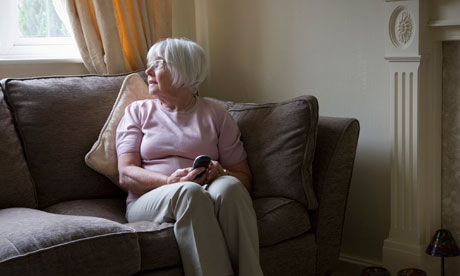Theories behind aging P4
The
Neuroendocrine Theory:
This theory says
that as we get older our hypothalamus which
is gland located in a particular area in the brain helps to control our
hormones. Which have slowed down due to aging. The chemical reaction which
occurs for the hormones to respond and produce slows down by losing its ability
to process things and as for our hormones they don’t process quick enough
making individual hormones become less sensitive to them.
One theory for the
hormones loss of regulation is to be a dark- hormone responsible for stress.
This has been known to be one of the few hormones that will increase with
stress.
This theory suggests
that as we get older the cells in our body age with us. This theory argues that
these cellular changes are being directed through the reproductive hormones
known as hypothalamic-pituitary. Hormone levels begin to change in men around
30 and for women it’s even more abrupt when they hit the stage of menopause
around the age of 50.
When the HPG axis
becomes unbalanced, cellular growth and development becomes deregulated and
cell death and dysfunction can occur at this time.
Discuss two major theories of aging
in relation to the development of the individual (M2)
Disengagement
for elderly people
An elderly person
will go through a number of stages in which they will experience disengagement.
This includes:
- Everyone expects death, and
one's abilities will likely deteriorate over time. As a result, every person
will lose ties to others in his or her society.
- Because individual interactions
between people strengthen norms, an individual who has fewer varieties of
interactions has greater freedom from the norms imposed by interaction.
Consequently, this form of disengagement becomes a circular or
self-perpetuating process.
- The individual's life is punctuated by ego changes. For example, aging, a form of ego change, causes knowledge and skill to deteriorate. However, success in an industrialized society demands certain knowledge and skill. To satisfy these demands, age-grading ensures that the young possess sufficient knowledge and skill to assume authority and the old retire before they lose their skills. This kind of disengagement is effected by the individual, prompted by either ego changes or the organisation—which is bound to organisational imperatives—or both.
In terms of disengagement effecting the celebrity I am writing
about which is lupita Nyong’o it wouldn’t affect her yet because she has no yet
reached the age of aging just yet and so this shall apply to her in her later
life after she has retired from her career as an actor and can no longer act. Although
her hobbies will begin to play a major part in her life these are: visiting museums:
in able to keep herself educated about history and the way of the world and so
old age shouldn’t stop her doing so., traveling she will be retired by a certain
person and when she is she’ll have more time on her hands to sightsee and visit
new places and discover new cultures ad their way of life, reading good books
and enjoying some good cooked food.
Evaluate the influences of two major
theories of aging in health and social care provision (D2)
Again this would not apply to the
celebrity that I am doing because she hasn’t yet reached that stage of her
life. But eventually when she requires that care in her elderly years lupita
will definitely require lots of care and
encouragement with activities/ interests
that she enjoys i.e.: her love to travel, read good books etc. also in terms of
her care during her aging years lupita will probably be able to afford to have
good care because of the profession she is currently in which is acting and so
because she is earning a massive amount she may choose to have private care In
her own residence which will consists of several carers all to carry out
different roles to help her with that she will no longer be able to do by
herself anymore.

She may have to withdraw because she will not have not have the
mental and physical strength to do things anymore like she could in her younger
life. If lupita is an actress then her body will become physically exhausted from
all the roles she has played in young years when she had the strength. As for a
health and social care setting she would most probably be withdrawn from
completing some of her favourite activities because of the main reason that I just
stated above which her lack of strength was. Although on the other hand she
might not have to withdraw from her hobbies/ activities if she gets a dedicated
and encouraging carer who will help her to continue perusing the activities she
enjoys to do despite her aging. Ie: taking her to eat in her favourite with a
carer assisting and helping her out, travelling can still occur if she still
has strength to flight or even short distance locations can be good even for a
great change of scenery would mean a whole to an elderly person than not
travelling anywhere.





